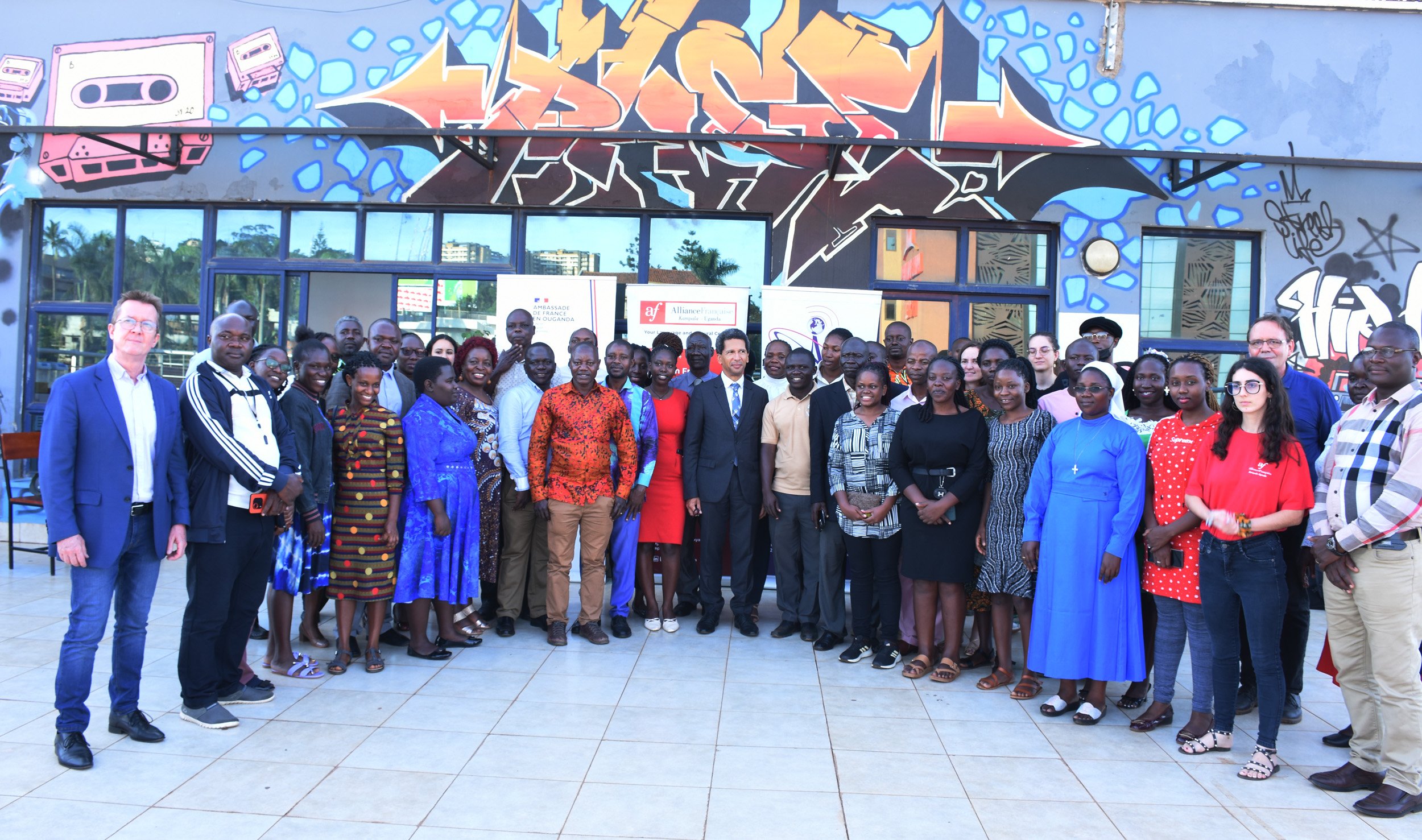Prime
Students earn more than French language skills

Nabisunsa Girls’ School students show off their DELF certificates after graduation. PHOTO | DAPHINE NAKABIRI.
What you need to know:
- Students of Nabisunsa Girls’ School graduated in French and got awards.
In this global village where proficiency in foreign languages has become golden, schools are taking on more language studies, one of which is French.
Recently Nabisunsa Girls’ School saw more than 60 students graduate with the Diplôme d’etudes en langue française (DELF) certificates, this year making it the third French graduation ceremony held at the school.
The certificates, which are awarded by the French Ministry of Education, not only certify the French language skills of non-native speakers but also provide students with an internationally recognised certification in French.
Hajjat Zulaika Kabuye Nabukeera, the head teacher, said interest and certification in the French language is an opportunity that boosts competitiveness in the global job market and at higher education levels.
“Learning a new language is quite hard because even with the normal curriculum, languages are optional. However, your interest in practically learning the French language has earned you a certificate that will put you an edge above the rest in any competitive arrangement,” Nabukeera said.
She commended parents who selflessly invest in the students’ future, in form of funds and encouraged the learners to also take on other levels of the French language. During the recent graduation, students showcased their expertise in speaking French through different performances.
Eric Touze, the director of Alliance Française de Kampala, who was the guest of honour was fascinated by the interest students have in learning French.
“Even though it is difficult to say the level at which the students are, I am surprised and impressed by their eloquence,” Touze said.
He encouraged the students to learn other languages as these will not only benefit them professionally but will also boost their confidence in different regions.
“French remains an important international language. However, knowing your local language, English and French or other languages give you two keys to the world. For me, learning a new language is one of the most beautiful adventures I could ever take,” he said, adding that with the knowledge of more languages in the global job market, bilingual individuals are in demand for practical reasons such as international business, government roles and tourism.
“If you know a different language, it becomes fun and is a rewarding experience as this boosts your self-esteem, confidence and can lead to lifelong friendships and connections with people from different cultures,” he says.
Angella Nanddu, one of the graduates, says although she attained the certificate before her O-Level certificate, she is grateful to God and is hopeful she will use the certificate to soar to greater heights in different countries.
“I have been learning the French for two years. This certificate from Alliance Francaise de Kampala has encouraged me to learn higher levels as well. To my fellow students, learn at least one international language and ensure that you are certified because this adds value to you and your learning,” she said.
Michael Kushemererwa, the DELF club patron at the school, said the certification is an appreciation of the students’ dedication towards learning.
“I have had the privilege to train these dedicated learners and it is their hard work, enthusiasm and commitment that has brought them to this significant milestone. Therefore, their success and awarding is a testimony to the perseverance and passion they exhibit to learn and excel,” Kushemerera said at the graduation.
Different from other subjects where students write and keep their notes for revision, he explains that learning a language is not about writing. The students are supposed to be taught to write, understand, speak and master the pronunciation of the words as this makes them fluent.
Kushemererwa encourages parents to enroll their children into learning different languages to be able to produce people that are holistically linguistic and competitive globally in their different professions.
“Some parents think that learning a new language is unnecessary. However, this enhances cognitive skills such as memory, problem-solving, and critical thinking. Students who study foreign languages tend to perform better in other academic areas because the skills developed through language learning, such as attention to detail and logical thinking are transferable to subjects such as Mathematics, Physics, Chemistry and others that parents tend to prioritise,” he said.
Students who excelled at the different levels were awarded certificates, notebooks, pens and tablets.




